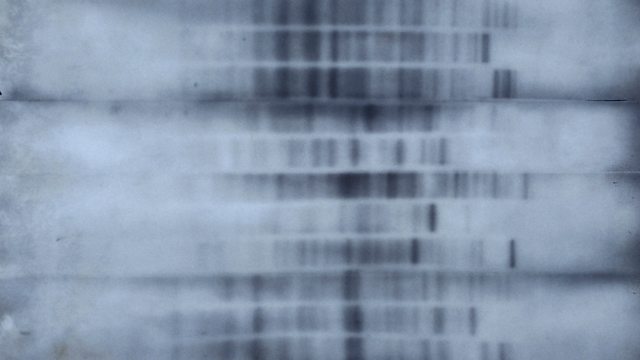
Genetics and the longer arm of the law
The extensive reach of forensic DNA - Professor Turi King reports on the unexpected ways in which genetics is tracking down criminals.
It is almost 40 years since Professor Sir Alec Jeffreys discovered genetic fingerprints in his University of Leicester laboratory. Now DNA is an integral part of criminal investigations worldwide, providing vital evidence to secure convictions and exonerate the innocent.
But the extraordinary breakthroughs in genetic science since then means a suite of new DNA tools is now available to police and law enforcement, as well as private citizens doing a spot of freelance crime fighting. How are these novel uses of forensic genetics overseen? And is there a risk of over-reach, the science running ahead of an ethical and regulatory framework?
Turi King led the genetic identification of Richard III after his body was dug up in a Leicester City carpark. She's also a Professor of Genetics at the University of Leicester (Sir Alec was her mentor) and in this programme she explores the history of forensic DNA and the unanticipated role of family tree hobbyists and recreational genealogy databases in crime fighting.
It was the recent Golden State killer case in the US where a serial murderer was eventually captured with the help of DNA, that thrust into the spotlight the use of private genealogy databases by law enforcement. Until this case hit the headlines the millions of family tree enthusiasts who had uploaded their DNA profiles in order to find their relatives, were blissfully unaware that the science in the genealogists' toolkit had been adopted by police officers hunting new leads in criminal cases.
Turi meets one of the first private DNA detectives from the US, Dr Colleen Fitzpatrick, who coined the phrase "forensic genealogy". Colleen uses her skills as a genealogist (originally this was her hobby; she trained as a rocket scientist) to help police solve scores of cold cases. She tells Turi that the DNA genie is out of the bottle, and the stopper can't be put back in.
And Turi discovers this is indeed the case. She hears about a group of private citizens, international freelance crime fighters, who, inspired by the Golden State killer case, are using DNA to track down abusive men.
Lawyer and former army officer, Andrew MacLeod, spent years working in war zones and on disaster relief and humanitarian emergencies. Frustrated by what he saw as an institutional failure to stop the rape and abuse of women and girls by aid workers, peacekeeping soldiers and sex tourists, he decided to take direct action through a charity, Hear Their Cries.
Their strategy is to match the DNA of children born from these abusive relationships, with relatives on the major genealogy databases ("we're doing family reunions" he tells Turi). Then, using classic genealogy skills, they can build the children's family tree and track down their fathers, wherever they might be in the world.
A pilot project in the Philippines led to five out of six fathers in the UK, US, Canada and Australia being confronted with their paternity obligations. The long-term aim, he tells Turi, is to send the message that with the help of DNA to identify them, there will be no escape for abusive men. If they have committed a crime, they will eventually be tracked down and made to pay.
Also in the programme: Gill Tully, former Forensic Science Regulator for England and Wales and Professor of Practice for Forensic Science Policy and Regulation at King's College, London; Carole McCartney, Professor of Law and Criminal Justice at Northumbria University; Dr Connie Bormans, Laboratory Director for Family Tree DNA, commercial genetic testing company in Houston, Texas; Manfred Kayser, Professor of Forensic Molecular Biology and Head of the Department of Genetic Identification, Erasmus University, the Netherlands and David Baker, former Chief Superintendent Leicestershire Police, led the double murder hunt for the killer of teenagers Lynda Mann and Dawn Ashworth in the 1980s.
Producer: Fiona Hill
Last on
![]()
Seriously...
Seriously is home to the world’s best audio documentaries. Introduced by Vanessa Kisuule.
Broadcasts
- Tue 17 Aug 2021 20:00Βι¶ΉΤΌΕΔ Radio 4
- Sun 22 Aug 2021 17:00Βι¶ΉΤΌΕΔ Radio 4

